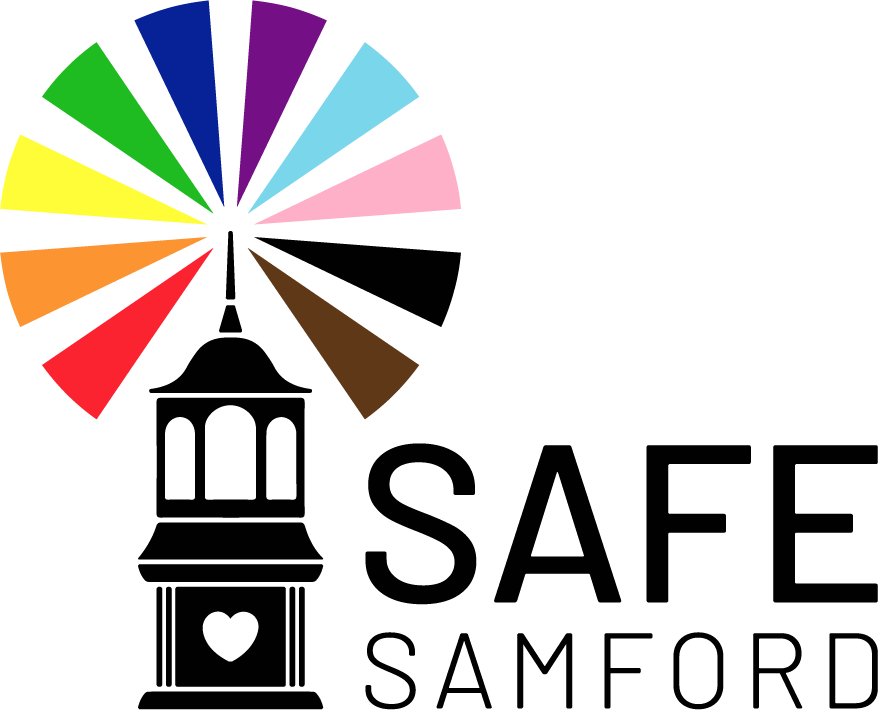"historically, the majority has used calls for solidarity as a tool to quiet already marginalized people"
Dr. Westmoreland,
I hope that you have read each word in each letter submitted here. They are heartfelt pleas to your humanity embedded in deeply personal, and often deeply painful, experiences. These stories are touching and transformative.
My approach here is different. I am a researcher by trade, and it is in that vein that I offer this account. I watched the video message that you released on July 7, 2017 several times in an effort to understand your decision. Your reasons for keeping Samford Together from going before the Board of Trustees were twofold: (1) that the group would be focused on advocacy work rather than discussion and (2) that the group is polarizing. I will address each of these in turn.
You stated the following in your message: “A great deal of skepticism has arisen about the intent of the organization. Some people have assumed that it is based more in the area of advocacy of political positions instead of fostering honest discussions on campus about these important topics.” And later in the video: “You may have read that some leaders of the Alabama Baptists have been critical of the possible efforts to organize Samford Together because they’ve been fearful that it would become an advocacy group and not just a discussion group.”
The legal definition of advocacy is “the active support of an issue or the espousement of a set cause” (Black’s Law Dictionary). Although you expressed fear of Samford Together becoming an advocacy group, Samford University is actually no stranger to advocacy work. Take, for example, the findings of the Community Engagement Report from 2013-2014 (the most recent available report) published on Samford’s website. The report details Samford’s involvement in the community doing what can easily be called advocacy work. I have listed only a fraction of the organizations Samford students advocated for below:
· McWhorter School of Pharmacy: Alabama Rural Health Initiative, Equal Access Birmingham Clinic, Pediatric Pharmacy Advocacy Group, National Community Pharmacists Association
· Greek organizations: Salvation Army Food Bank, Ronald McDonald House, Sickle Cell Foundation, Huntsman Cancer Institute, St Jude’s Children’s Research Hospital, American Cancer Society’s Relay for Life, Habitat for Humanity, American Juvenile Arthritis Organization, Make-a-Wish Foundation, St. Jude’s Children’s Research Hospital, American Cancer Society, muscular dystrophy education and mentorship, Wounded Warrior Project, Ability Experience
· Athletics: Leukemia and Lymphoma Society, NorthStar Youth Ministries
· Beeson Divinity School: two practicums (Cross-Cultural Ministry Practicum and Ministry Leadership Practicum), the Global Center
· Brock School of Business: Bulldog Fund, ENACTUS
· Cumberland School of Law: National Celebrate Pro Bono Week, Project Homeless Connect
· Howard College of Arts and Sciences: Amnesty International, Birmingham Area Debate League, environmental cleanup efforts undertaken by Biology students, Old Howard 100 Bike Ride, Martin Luther King Jr. Day of Service, Student Members of the American Chemical Society
· Ida V. Moffett School of Nursing: CampUS, Go Red Heart Campaign, Samford University Association of Nursing Students, medical mission trips
· Orlean Bullard Beeson School of Education: Pen Pal Project, Miles College partnership, Cub Club morning intervention, Turning Points
· School of the Arts: Better World Theatre, Fairy Tale Festival, graphic design projects for non-profit organizations, Salvador’s Deli Fundraiser, Samford Theatre for Young Audiences
· School of Health Professions: Samford Legacy 5K, Mercedes Marathon, Special Equestrians Fundraiser
· School of Public Health: a variety of health-related community service projects (e.g., Great Vegetable Run, Girl Scouts of America, Girls on the Run, First Light Women’s Shelter, Children’s Hospital, etc.), Samford Student Dietetic Association
It seems, then, that advocacy work is not the problem. It is this kind of advocacy work on behalf of LGBTQ students, staff, and faculty.
Your second objection to Samford Together was this: “I also recognize that the group itself has become such a polarizing matter within the Samford community that it would be better to have the conversations without extending official recognition.” Again, Samford has never been a university to shy away from matters that are polarizing. When I was a student, I attended a debate sponsored by the university between two scholars discussing pre-destination and free will. Polarizing? Certainly. I also suspect that those who sponsored this event landed fairly firmly on one side or the other of this debate; however, they also realized that stifling one side of the debate was no way to handle the issue. Rather, it is through free discussion that individuals are truly able to approach challenging (and polarizing) ideas. My professors at Samford taught me to examine issues fully and to think critically, not to shield myself from opinions different than mine or theirs. I was consistently confronted with polarizing issues, and that taught me how to engage thoughtfully and critically. Unfortunately, the stifling of dialogue is all too common when it comes to LGBTQ people; calls for unity are used to silence discussion and opposing viewpoints. The problem is that historically, the majority has used calls for solidarity as a tool to quiet already marginalized people. Unity is an admirable goal, but it can only happen in the presence of dialogue where all voices are welcome.
I will close with a Biblical plea. In my four years at Samford, this verse was quoted at innumerable Samford events: “And what does the Lord require of you but to do justice, and to love kindness, and to walk humbly with your God?” (Micah 6:8). I hope that Samford chooses to do justice moving forward.
Sincerely,
Erin Basinger, Ph.D.
Samford University Class of 2008
